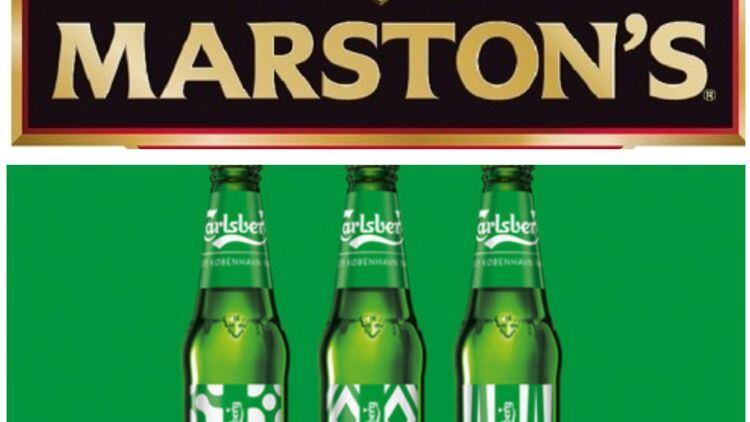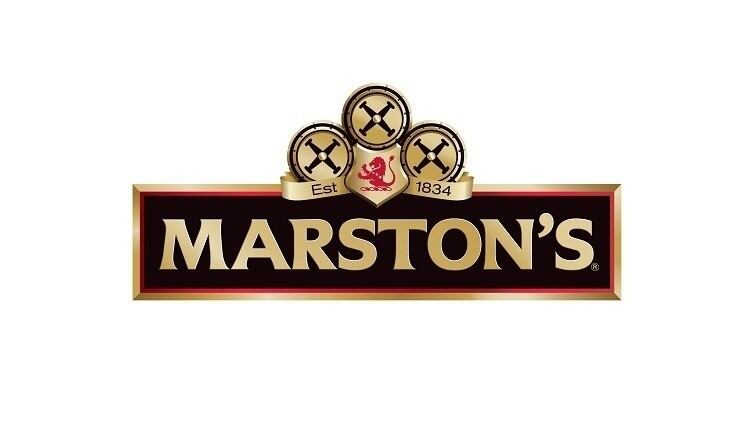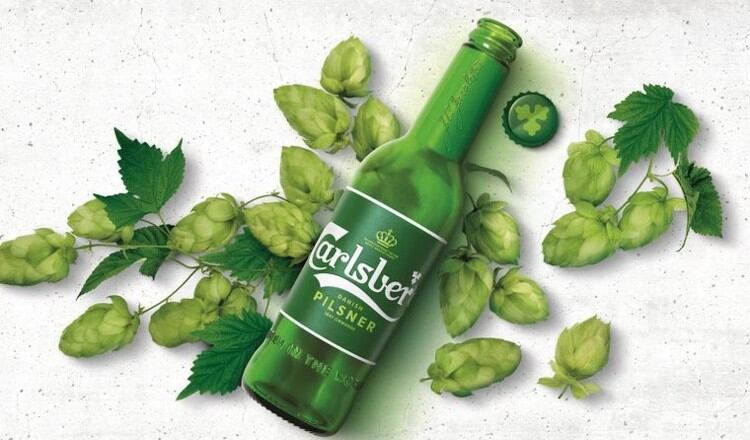As reported by The Morning Advertiser (MA) on 22 May, Marston’s Brewing Business and Carlsberg UK announced their intention to merge and create Carlsberg Marston’s Brewing Company. Valued at £780m, the joint brewing venture will be 60% owned by Carlsberg UK, with Marston’s holding the remaining 40%.
Speaking less than a week after the announcement, Marston’s Ralph Findlay tells MA that while initial discussions were held with Carlsberg as far back as November 2019, head of terms were agreed in February before Covid-19 caused last orders to be called across the Wolverhampton-based company’s estate of around 1,350 pubs on 20 March.
“I can tell you that concluding a deal like this with a lockdown and 80% of your business shut is right up there in terms of corporate experiences,” he says.
“The biggest thing is that, at a time of huge uncertainty for pubs, this deal is a massive vote of confidence for the pub and UK brewing sectors. It’s not just two brewing businesses that are being put together, Carlsberg in Denmark are putting an extra £300m of capital into the UK. They wouldn’t be doing that if they weren’t confident in the longer-term future of both those markets – and nor would we be doing that if we weren’t. However difficult it is now, we and Carlsberg both see a very positive future for both pubs and brewing.”
Carlsberg UK’s CEO Tomasz Blawat – who will head Carlsberg Marston’s Brewing Company as its CEO – adds: “For Carlsberg UK, it will enable the business to grow, build an even better drinks portfolio of cask ales, craft, world beers and lagers, and access to Marston’s pub estate. For Marston’s, it’s beer portfolio will be a key part of a global brewer’s UK portfolio and it can focus resources on its pub estate.
“I’m confident that Carlsberg’s global brand portfolio and scale, together with Marston’s strong heritage, extensive distribution platform and established reputation for brewing and logistics excellence, combine the best attributes of both to create a compelling beer business with an outstanding portfolio of global and local beer brands, proven brewing expertise, strong distribution network and wholesale opportunity.”
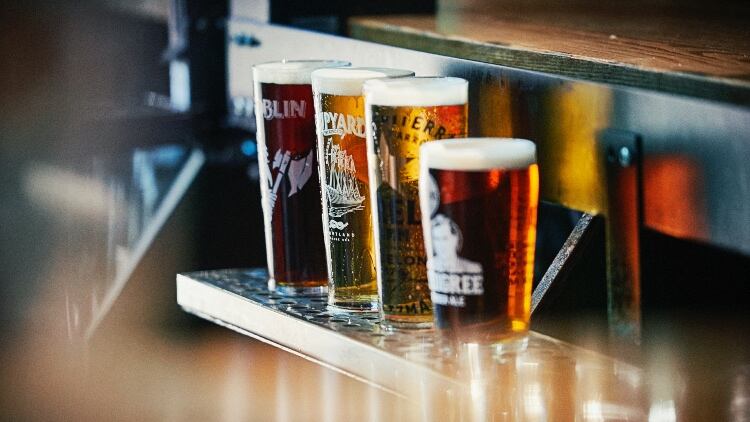
‘Clear plan’ for pubs
‘Useful time to be picking up £239m’
According to Douglas Jack, equity analyst at investment banking specialist Peel Hunt, the joint venture between Carlsberg and Marston’s is a game-changer for the latter given its timing and economics, with Jack stating that it’s “a brilliant deal”, which gives Marston's the firepower and liquidity to emerge from the Covid-19 crisis in a stronger position.
“They’ve done a deal on part of the business which generated 21% of the group EBITDA (earnings before interest, taxation, depreciation and amortisation) and have only sold 60% of it – but obviously into a joint venture, which will include synergies in Carlsberg,” he explains.
“Doing a joint venture arrangement within 21% of the profit of the group has generated £239m cash up front and includes a 40% stake in a business – which we value at £312m. That means a valuation of around £580m for part of the business that generates just over 20% of the group profit.
“It’s enormous given that the market capitalisation on the stock market of the whole company was just £200m. They're getting cash in at £239m, which exceeded the previous market capitalisation of the entire group.
“On top of all that, the cash flow from the brewery under the joint venture is expected to be no less than what it was before they banked the cash. In other words, without doing the deal they would have expected cash flow on the brewery to be about £18m and they’re expecting, having banked £239m, to still be at least that.
“It is a game-changing deal in that the economics are great and, of course, at a time when lots of businesses are struggling to survive it’s quite a useful time to be picking up £239m.”
As the major shareholder in Carlsberg Marston’s Brewing Company, Carlsberg will take control of Marston’s beer operations under Blawat and boast three board members to Marston’s two – with Findlay, who describes the deal as a huge but necessary moment in Marston’s history, serving as a non-executive chairman.
“As a company, we’ve had control over our brewing operation since the 1830s and this is the first time the business won’t by creating this joint venture and will be a focused pub operator,” he explains.
“The market is an incredibly competitive place, as it has been in recent years, and this will help us to sharpen up, get even better than we were and be able to offer our customers more in future.
“For all intents and purposes, what that means for Marston’s PLC is that we will be a focused pub operator concentrating entirely on our pub business but with an investment within the joint venture. It will be very different.”
Looking forwards, Marston’s has a “very clear plan” for its nationwide estate of pubs as its business refocuses, according to Findlay.
“That includes community pubs, food-led pubs, lodges, rooms – pubs and bars such as the Lost & Found and Pitcher & Piano,” he says. “I like that spread across all aspects of the pub sector because to me it gives more opportunity to grow with less of the business is focused in one particular area, which I think reduces risk and we’ll continue to do that.
“The second thing about it though is that being focused on our business is going to be essential for the next year or so as we come out of this lockdown and start to get a feel for what the pub trade is like after Covid-19 has become less of an issue than it is today.”
‘No material impact’ on disposals strategy
As reported by MA in October 2019, Marston’s revealed net debt of £1.39bn in a trading statement for the year ending 28 September 2019, with the reduction of this figure described as the company’s “principal focus” by Findlay at the time of writing.
In keeping with plans to slash its net debt by £200m by 2023 by increasing disposal values from £40m to £70m for the current financial year, Marston’s agreed the sale of 137 pubs to Admiral Taverns in November 2019 as well as a deal to offload 29 pubs to Hawthorn Leisure in January 2020.
Moreover, on 14 May, Marston’s revealed it had agreed an additional 180-day bank facility of £70m subject to final documentation and cancelled 2020 dividends amid the novel coronavirus crisis.
However, while the joint venture with Carlsberg provides Marston’s with an initial £239m windfall – with a deferred contingent payment of £34m due 12 months after the deal’s expected completion in September – Marston’s chief executive doesn’t expect the transaction to steer the company’s pub disposal strategy moving forwards.
“I don’t think it will have any material impact on that because we made a significant number of disposals last year – the last package of pubs we sold was to NewRiver – and I don’t have any plans for material disposals at this point.
“Once we come out of this, ultimately, Marston's Pub Company is going to be seeing how it grows its business rather than shrinks it. This deal, I think, will give us a bit more capital to do that.”
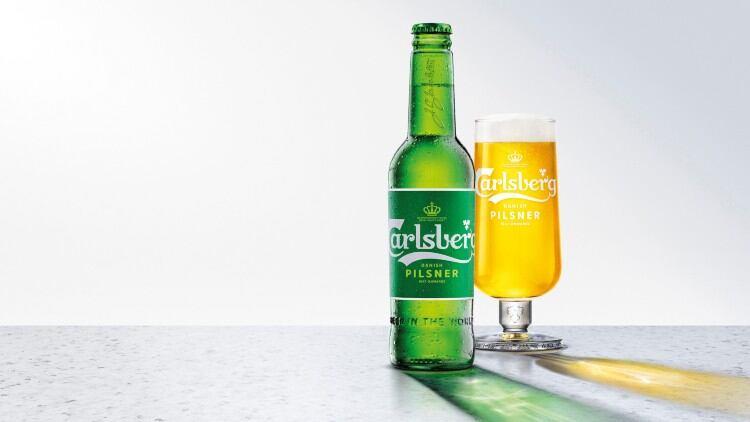
Complementary drinks brands
However, the creation of Carlsberg Marston’s Brewing Company has been described as a “red flag” by the Campaign for Real Ale’s (CAMRA) chief executive Tom Stainer who fears that the 11 other breweries and brands it owns such as the 50,000-hectolitre home Hobgoblin, Wychwood Brewery, could be under threat.
“If this joint venture goes ahead, we would see further consolidation of the brewing industry into just a few large, international players – to the detriment of our national brewing heritage, consumer choice, the diversity of beer in pubs across the country and the access to market for the small, independent brewing industry,” Stainer says.
“CAMRA wants to see Carlsberg and Marston’s protect jobs and protect pubs, as well as to resist any brewery closures or moves that would see existing beers losing their identity, or regional character, as part of a merger.”
Asked about the joint venture plans for Marston’s existing collection of UK breweries and sub-brands and how Carlsberg Marston’s Brewing Company will promote diversity and consumer choice in Britain’s pubs, Blawat explains that his vision is to combine Carlsberg’s lager credentials with Marston’s cask ale expertise to form “an enviable beer and beverage portfolio”.
“One of the greatest strengths of the Marston’s business is its portfolio of regional brands that are brewed locally,” Blawat explains. “It will remain important to the joint venture that we continue to have a local brewery for consumers of these brands.
“Ultimately, Carlsberg Marston’s Brewing Company will have complementary international, national and regional beers and brands to offer to pubs and beer drinkers.
“Carlsberg brands include Carlsberg Danish Pilsner, Carlsberg Expørt, Poretti, Tetley’s, Somersby cider and the London Fields Brewery craft portfolio, brewed in Hackney, London. It also holds the brand licences in the UK for San Miguel, Mahou and the Brooklyn Brewery craft beer portfolio.
“Marston’s is a leading pub operator and independent brewer of premium cask and packaged ales, including Hobgoblin, Wainwright, Marston’s Pedigree and 61 Deep. Marston’s also operates a number of brands under licence with global brand owners such as Estrella Damm, Shipyard, Erdinger, Warsteiner and Kirin.”
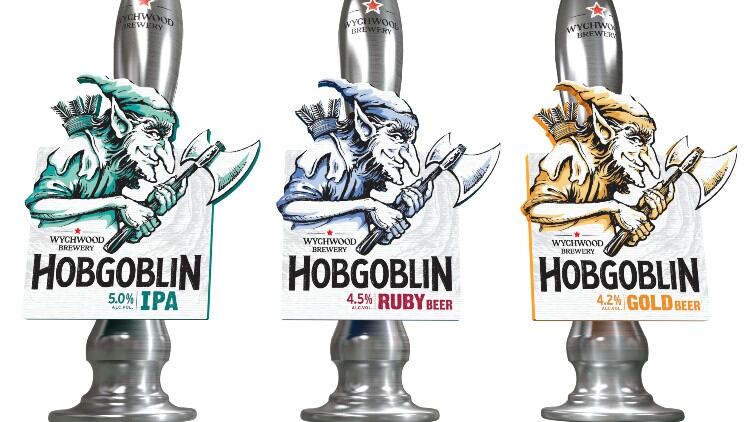
Fuller’s and Greene King comparisons?
What’s more, while CAMRA’s Stainer describes the joint venture as “further consolidation” following landmark deals between Asahi and Fuller’s beer business and Greene King and CK Asset Holdings in the past 18 months – Douglas Jack, equity analyst at investment banking specialist Peel Hunt argues that Marston’s may have got the best deal of the lot.
“The Greene King deal is very different in that they were buying the entire business – all the pubs and everything else – and coming off the stock market,” he explains. “There will be more parallels with the Asahi deal with Fuller’s except Asahi has taken over 100% of the brewery function of Fuller’s whereas here Carlsberg is taking 60%. That’s where the similarities would be greatest between those two transactions. Fuller’s obviously sold on a good price when they did their transaction.
“What people will look at, obviously – and we've seen it before with Young’s, Charles Wells and others – when you do these transactions you want to make sure that you’re brewing and beer quality is retained and not compromised, but the fact the guys at Marston’s actually have an involvement through the joint venture should help to protect their core beer products.”
• Read the latest digital edition of The Morning Advertiser – for free – by clicking here.


